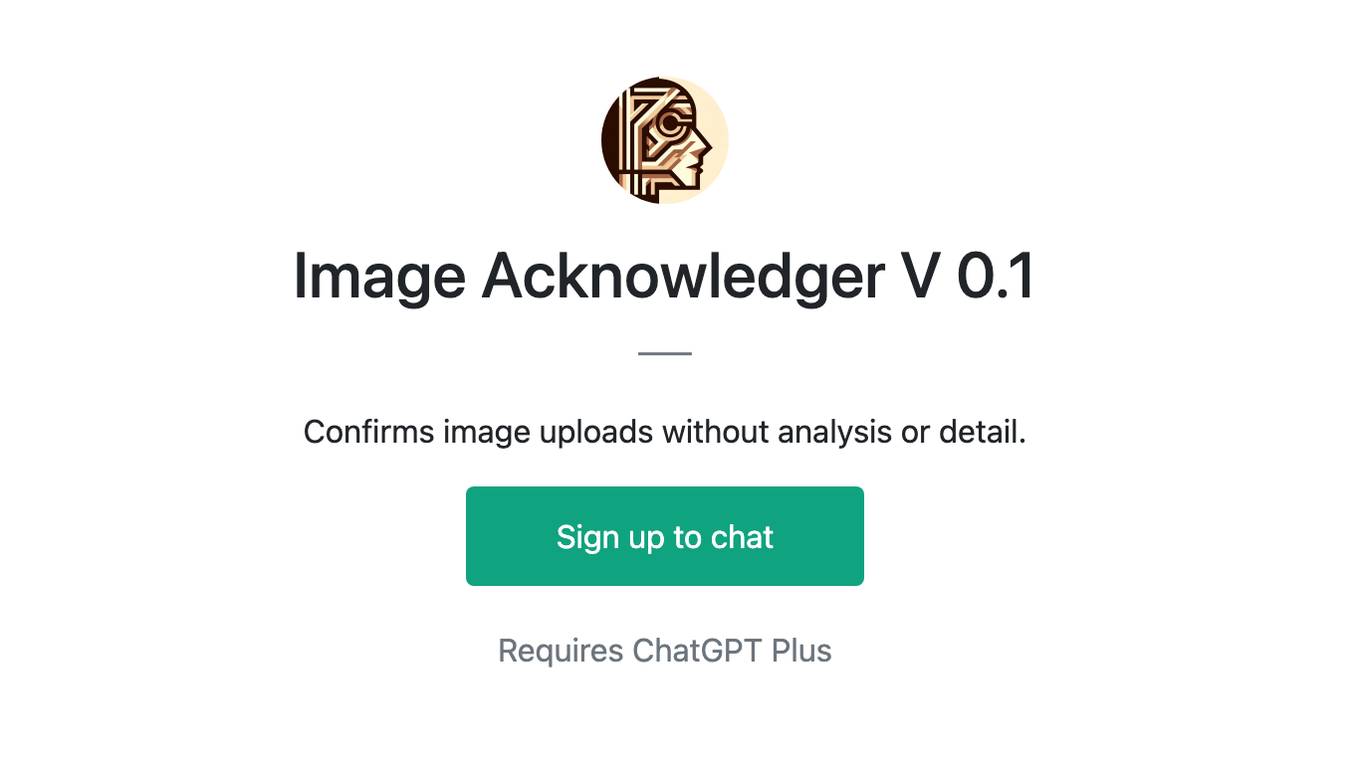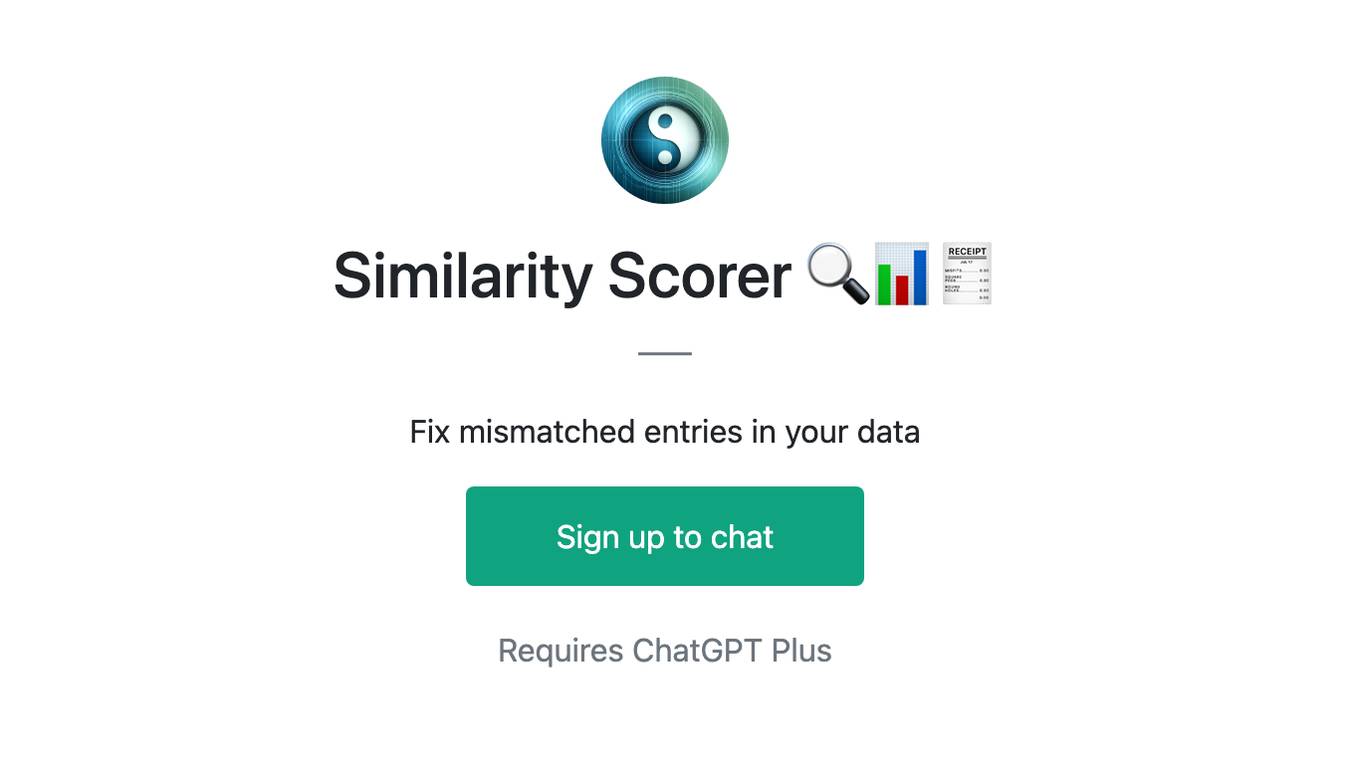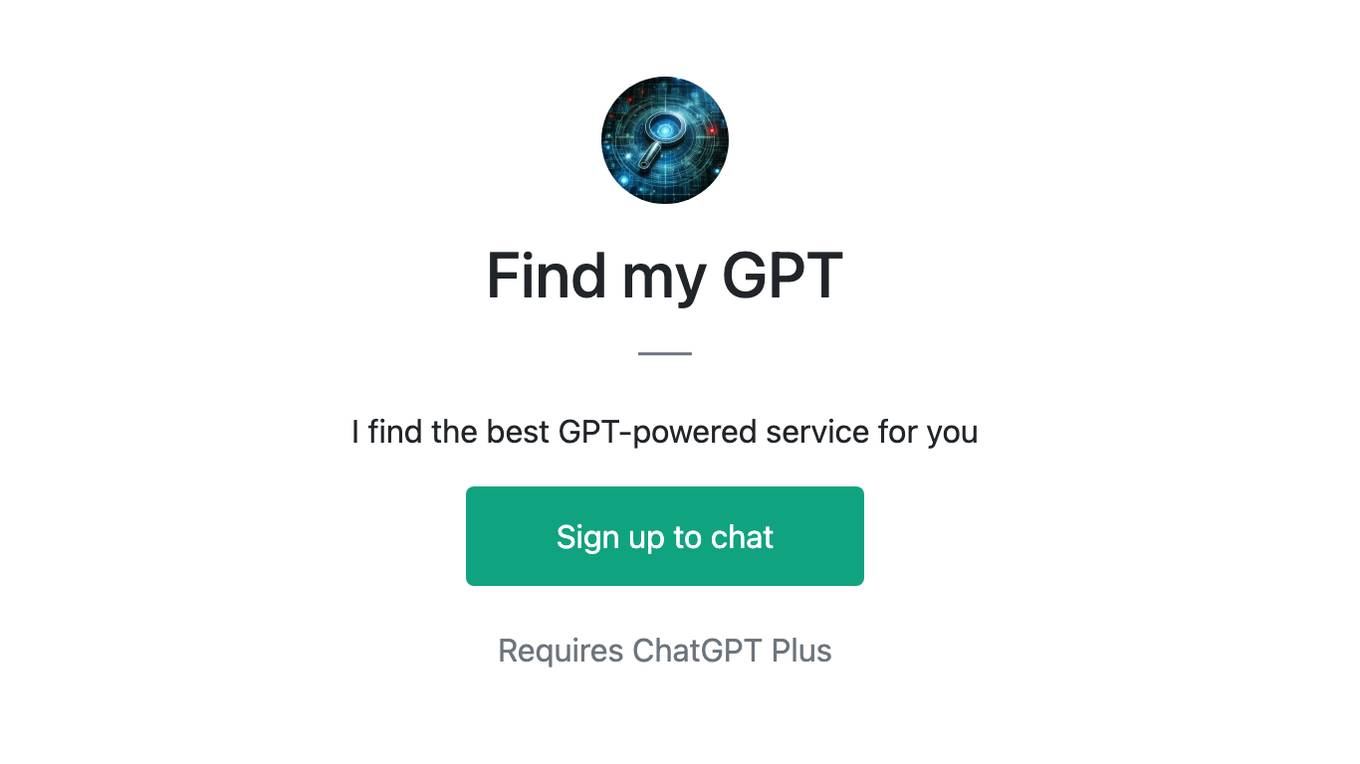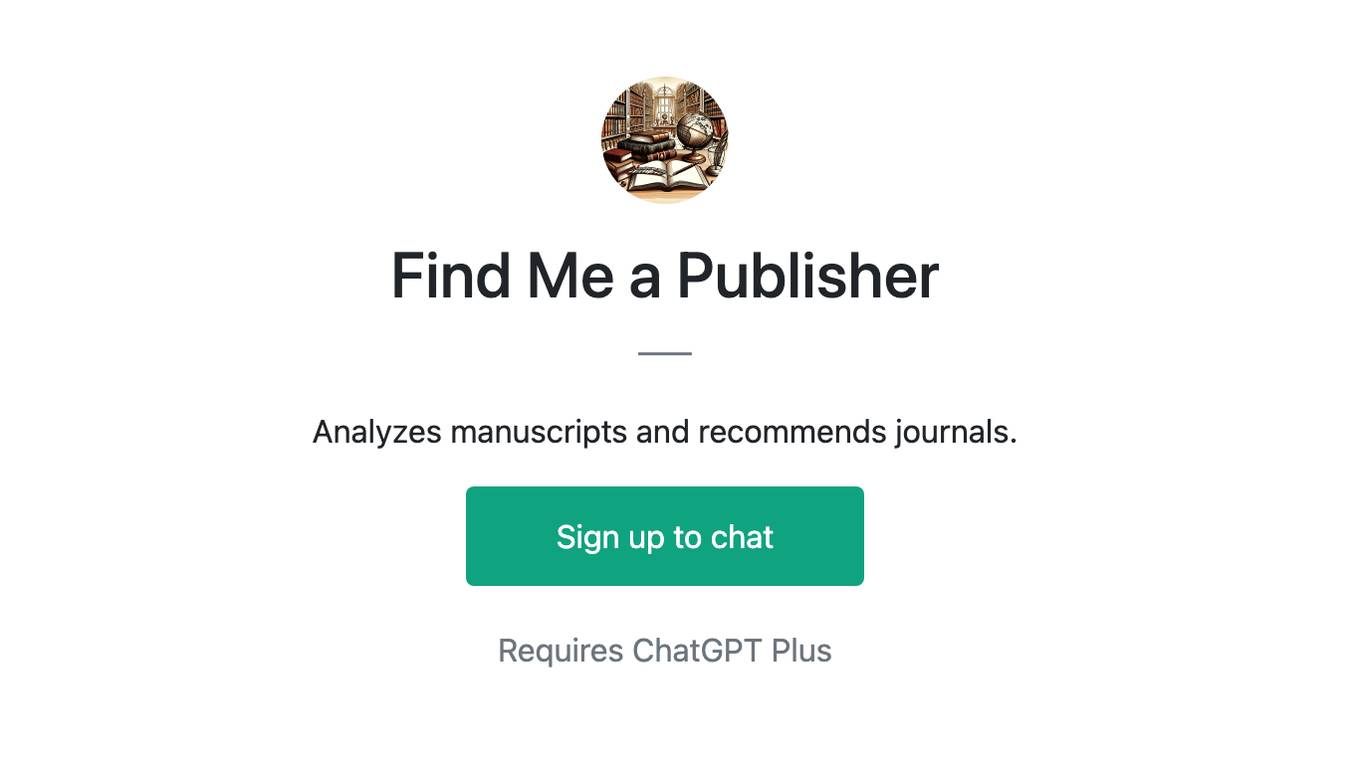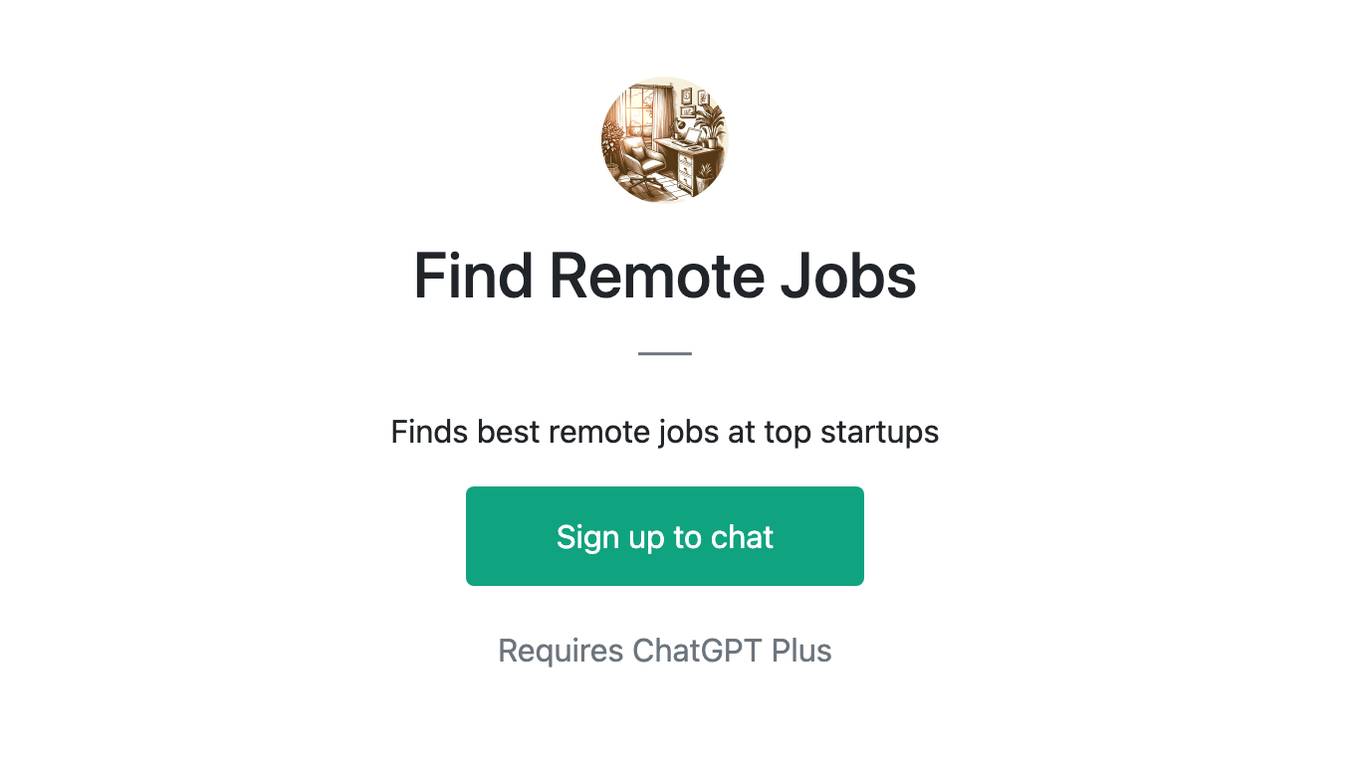Best AI tools for< Find Duplicate Images >
20 - AI tool Sites
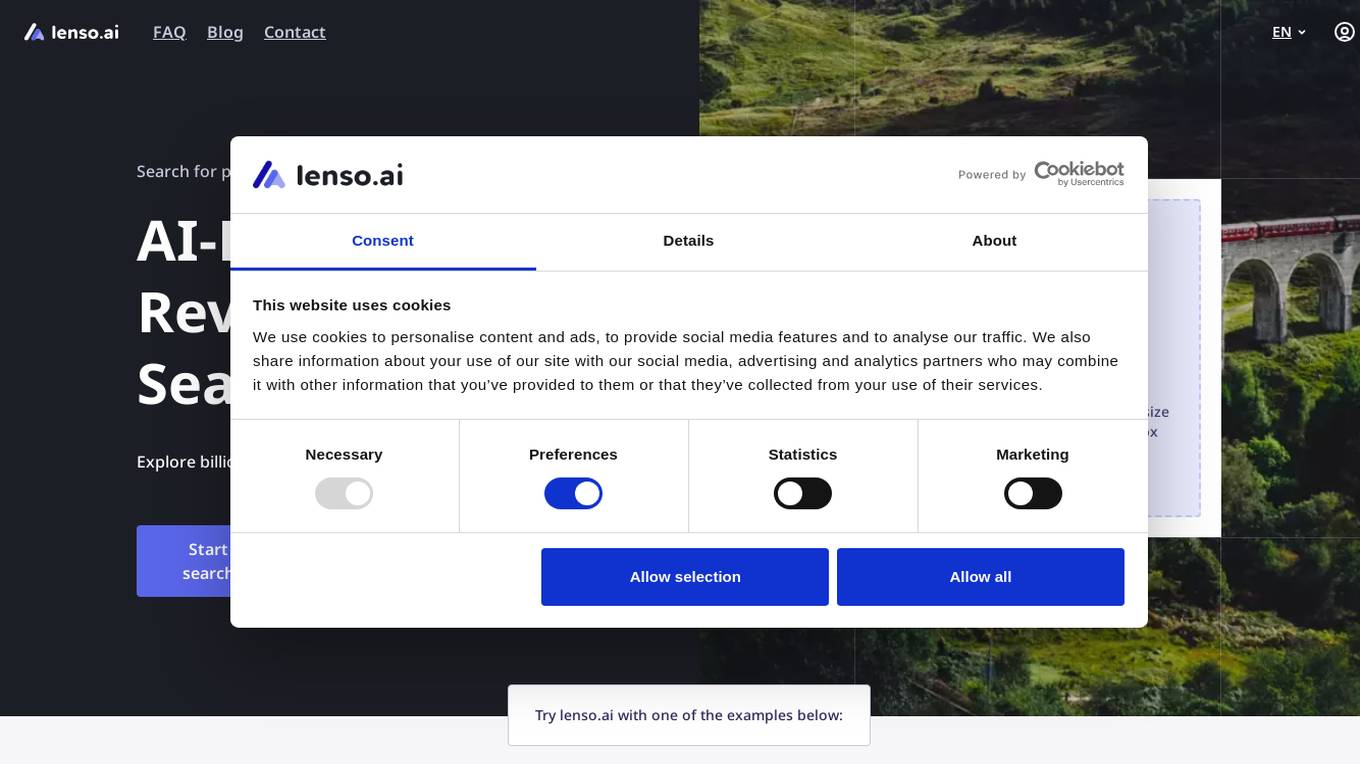
Lenso.ai
Lenso.ai is an AI-powered reverse image search tool that allows users to explore billions of images from the web with advanced AI technology. It offers a more accurate and efficient process of reverse image search compared to traditional methods. Users can search for places, people, duplicates, and related images effortlessly. The tool is designed to cater to diverse needs, from professional photographers to marketers and enthusiasts, providing a faster, easier, and more accurate image search experience.
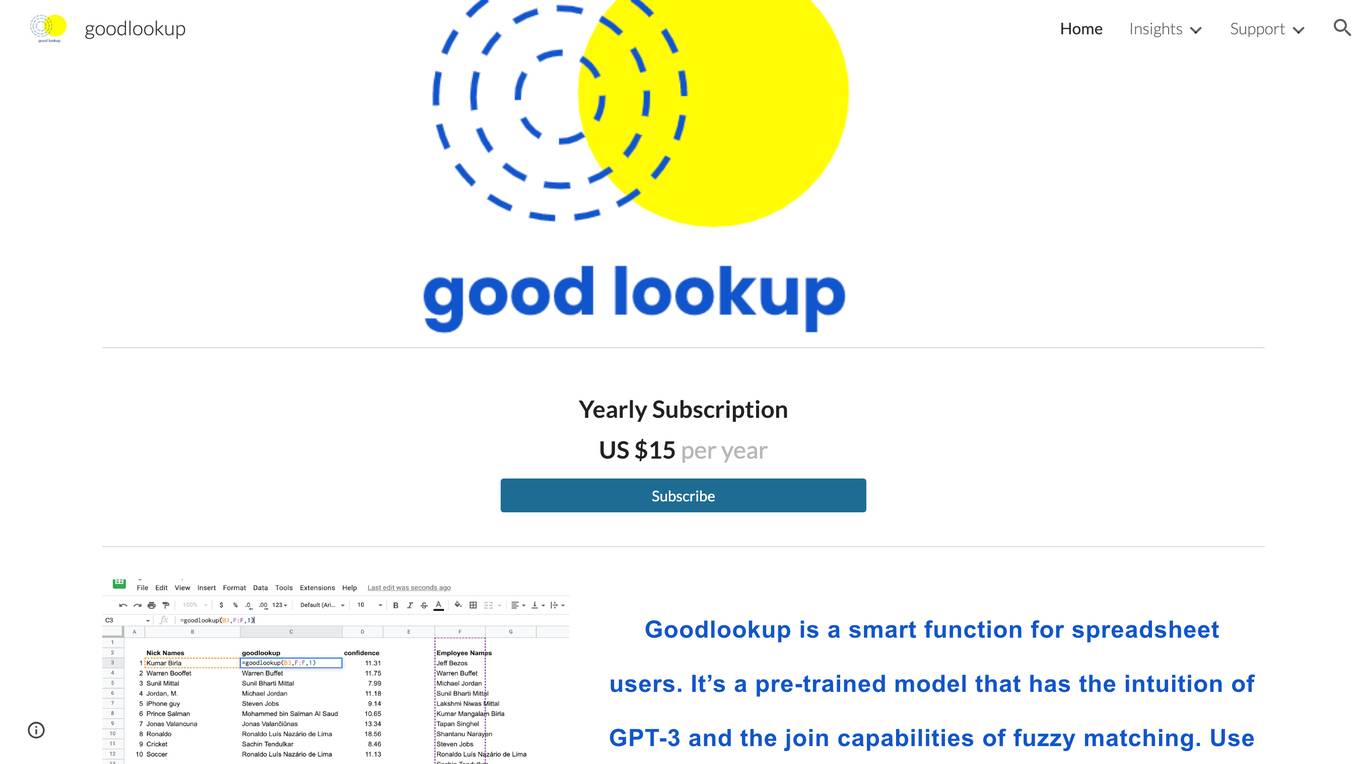
Goodlookup
Goodlookup is a smart function for spreadsheet users that gets very close to semantic understanding. It’s a pre-trained model that has the intuition of GPT-3 and the join capabilities of fuzzy matching. Use it like vlookup or index match to speed up your topic clustering work in google sheets!
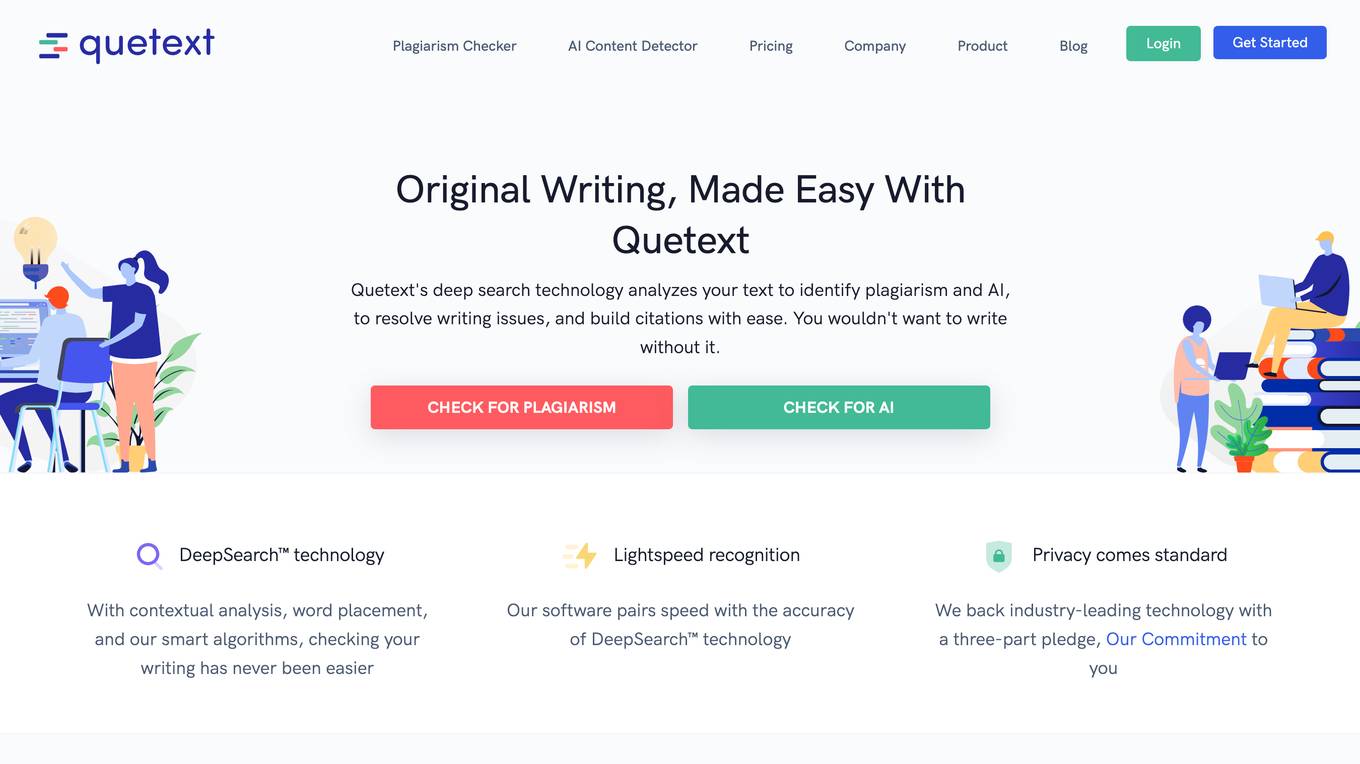
Quetext
Quetext is a plagiarism checker and AI content detector that helps students, teachers, and professionals identify potential plagiarism and AI in their work. With its deep search technology, contextual analysis, and smart algorithms, Quetext makes checking writing easier and more accurate. Quetext also offers a variety of features such as bulk uploads, source exclusion, enhanced citation generator, grammar & spell check, and Deep Search. With its rich and intuitive feedback, Quetext helps users find plagiarism and AI with less stress.
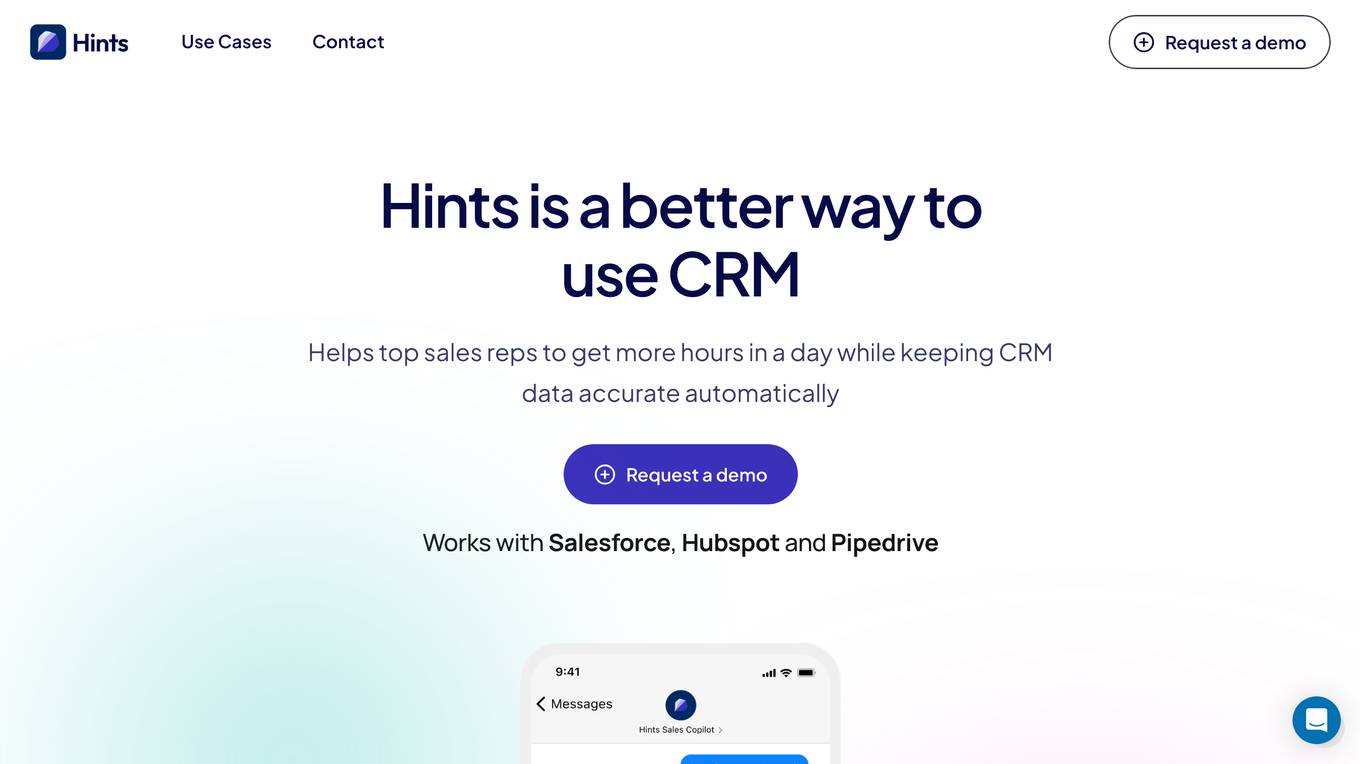
Hints
Hints is a sales AI assistant that helps sales reps to get more hours in a day while keeping CRM data accurate automatically. It works with Salesforce, Hubspot, and Pipedrive. With Hints, sales reps can log and retrieve CRM data on any device with chat and voice, get guidance on their next steps, and reminders of what's missing. Hints can also help sales reps to create complex CRM updates in seconds, find duplicates, suggest actions, automatically create associations, and look up sales data through chat and voice commands. Hints can assist sales reps in building the perfect sales process for their team and provides fast onboarding for new sales reps.
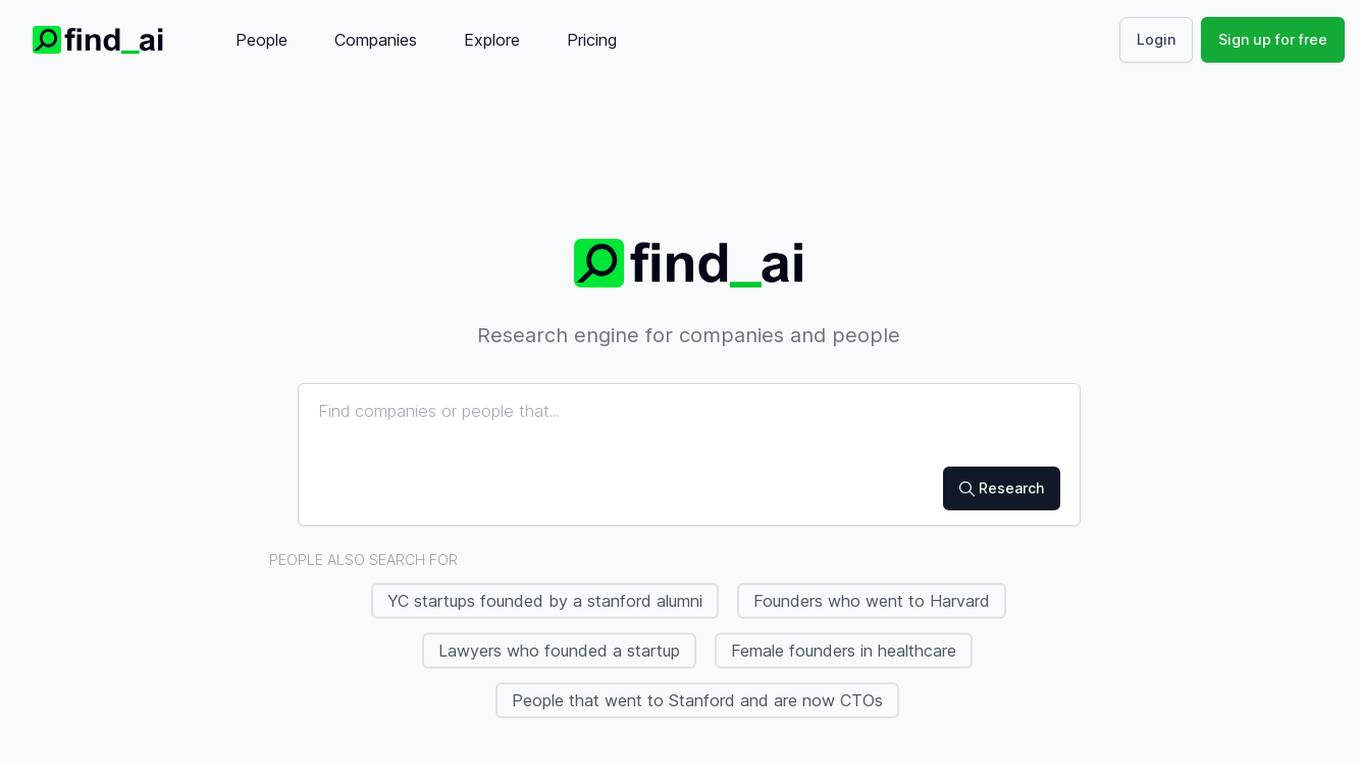
Find AI
Find AI is an AI-powered search engine that provides users with advanced search capabilities to unlock contact details and gain more accurate insights. The platform caters to individuals and companies looking to research people, companies, startups, founders, and more. Users can access email addresses and premium search features to explore a wide range of data related to various industries and sectors. Find AI offers a user-friendly interface and efficient search algorithms to deliver relevant results in a timely manner.
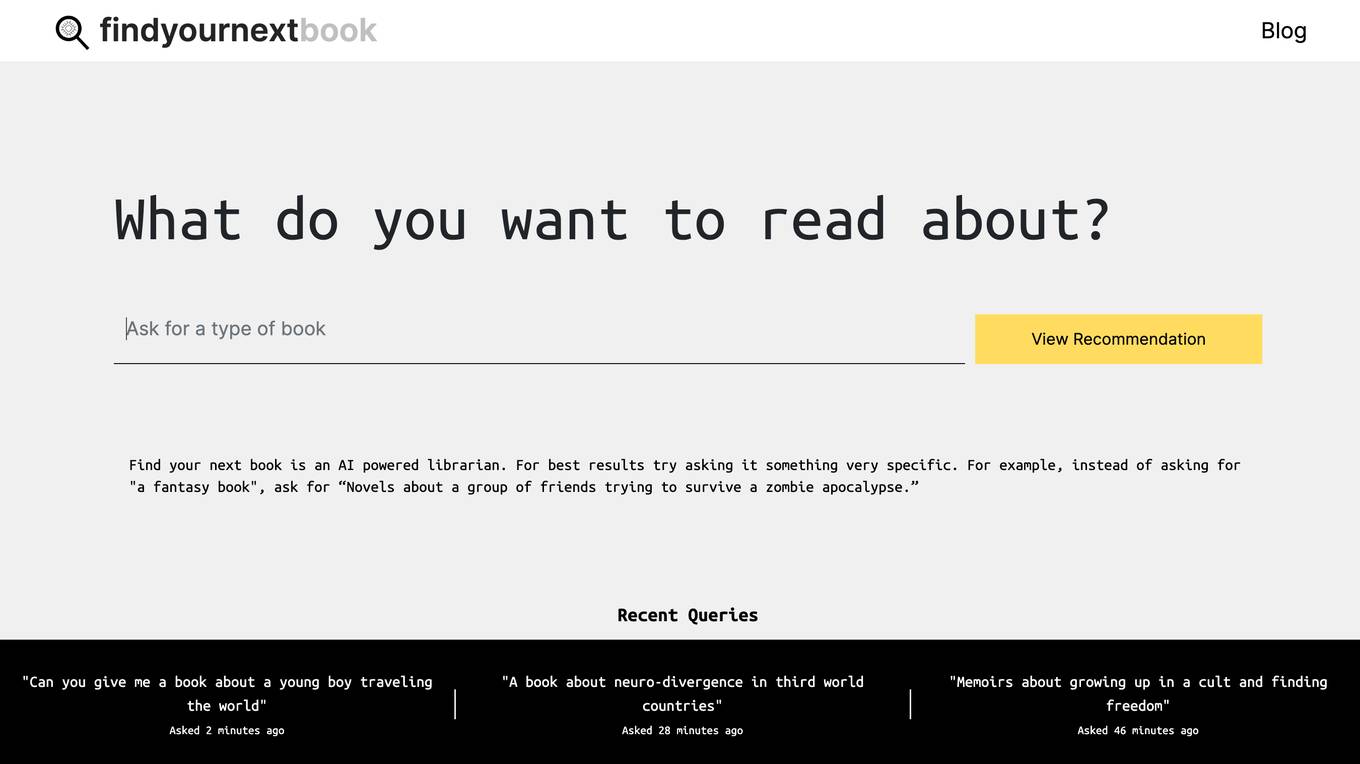
Find your next book
Find your next book is an AI-powered librarian that provides personalized book recommendations based on your preferences. It uses advanced algorithms to analyze your reading history, interests, and other factors to suggest books that you're likely to enjoy. The platform offers a wide range of genres and authors to choose from, making it easy to find your next favorite read.
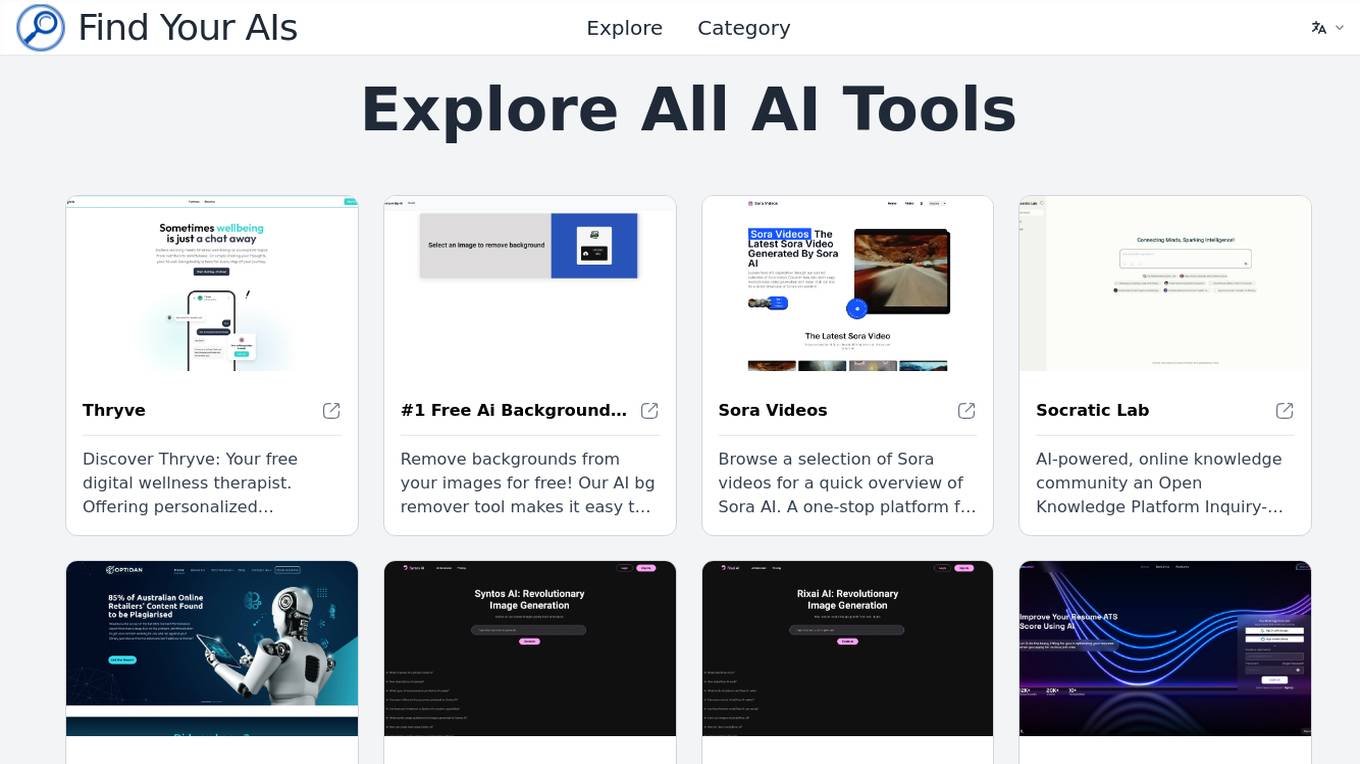
Find Your AIs
Find Your AIs is an AI directory website that showcases a wide range of AI tools and applications. It offers a platform for users to explore and discover various AI-powered solutions across different categories such as digital wellness, marketing, text-to-image generation, resume customization, and more. The website aims to connect users with innovative AI technologies to enhance their daily lives and work efficiency.
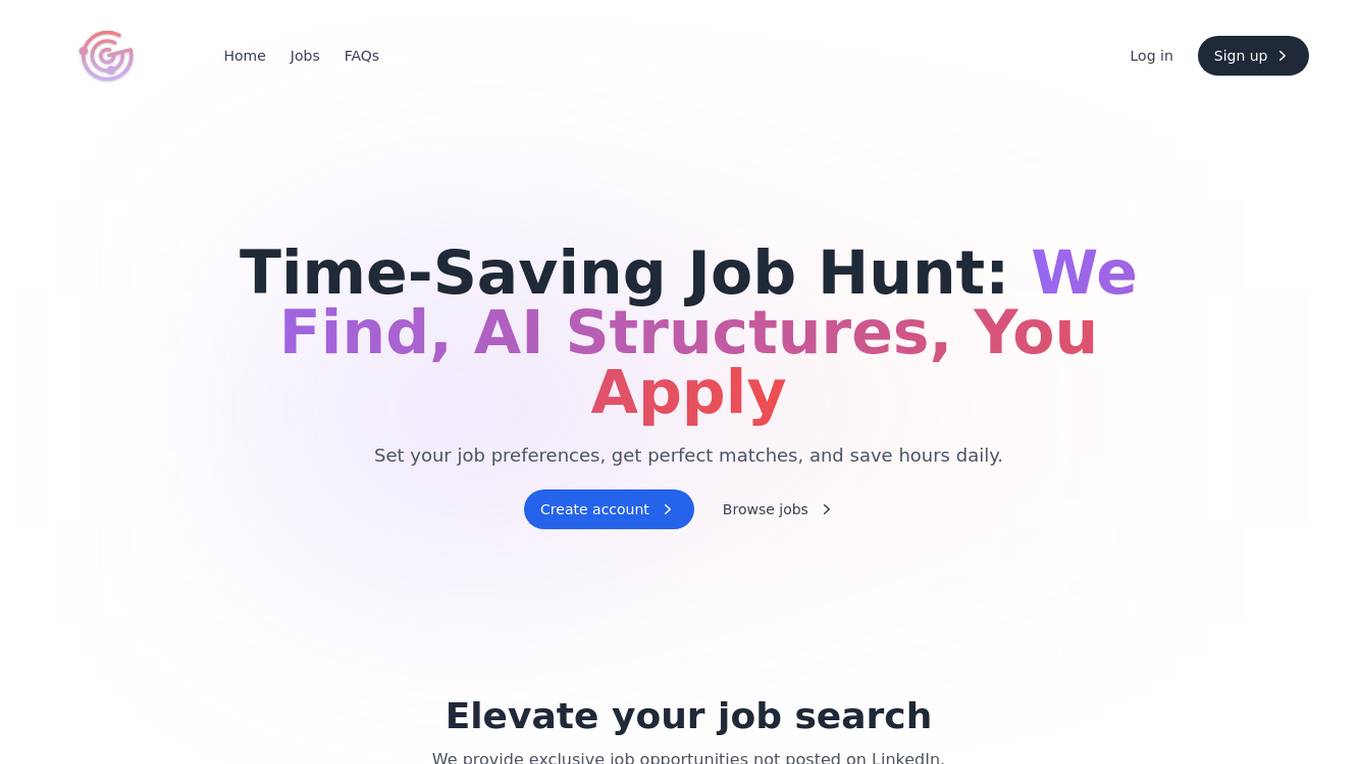
Find My Remote
Find My Remote is an AI-powered job search platform that streamlines the job hunting process by leveraging artificial intelligence to find and structure job postings from various ATS platforms. Users can set their job preferences, receive personalized job matches, and save time by applying to curated job listings. The platform offers exclusive job opportunities not typically found on popular job search websites like LinkedIn. With features such as job discovery, application tracking, and faster application process, Find My Remote aims to revolutionize the way job seekers find and apply for jobs.

Find New AI
Find New AI is a comprehensive platform offering a variety of AI tools and efficiency solutions for different purposes such as SEO, content creation, marketing, link building, image manipulation, and more. The website provides reviews, tutorials, and guides on utilizing AI software effectively to enhance productivity and creativity in various domains.

Find My Size
Find My Size is a web application that provides personalized size recommendations for exclusive deals at hundreds of top retailers. Users can input their measurements and preferences to receive tailored suggestions for clothing items that will fit them perfectly. The platform aims to enhance the online shopping experience by helping customers find the right size and style without the need for multiple returns. Find My Size collaborates with various retailers to offer a wide range of products across different categories, including active & sportswear, young contemporary, business & workwear, lingerie & sleepwear, outerwear, maternity wear, plus size apparel, and swimwear.
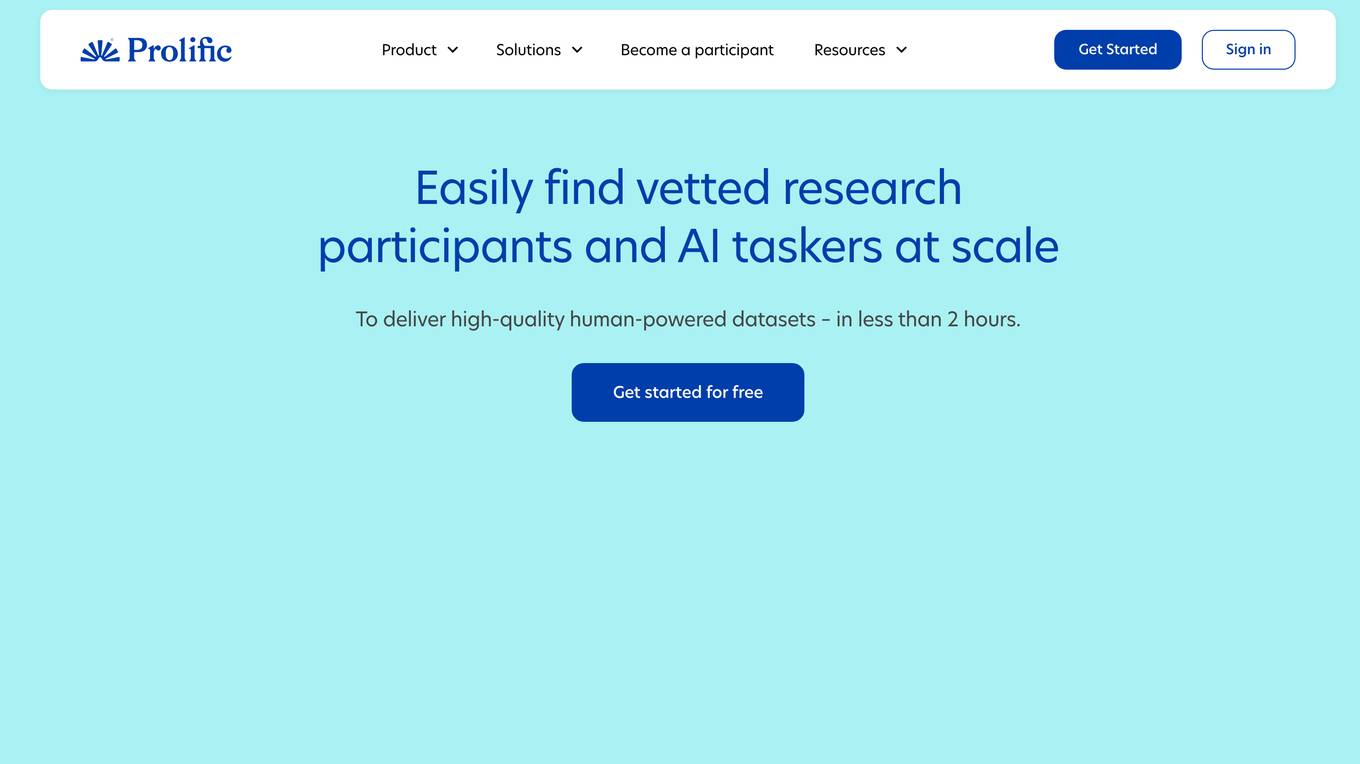
Prolific
Prolific is a platform that allows users to quickly find research participants they can trust. It offers a diverse participant pool, including domain experts and API integration. Prolific ensures high-quality human-powered datasets in less than 2 hours, trusted by over 3000 organizations. The platform is designed for ease of use, with self-serve options and scalability. It provides rich, accurate, and comprehensive responses from engaged participants, verified through manual and algorithmic quality checks.
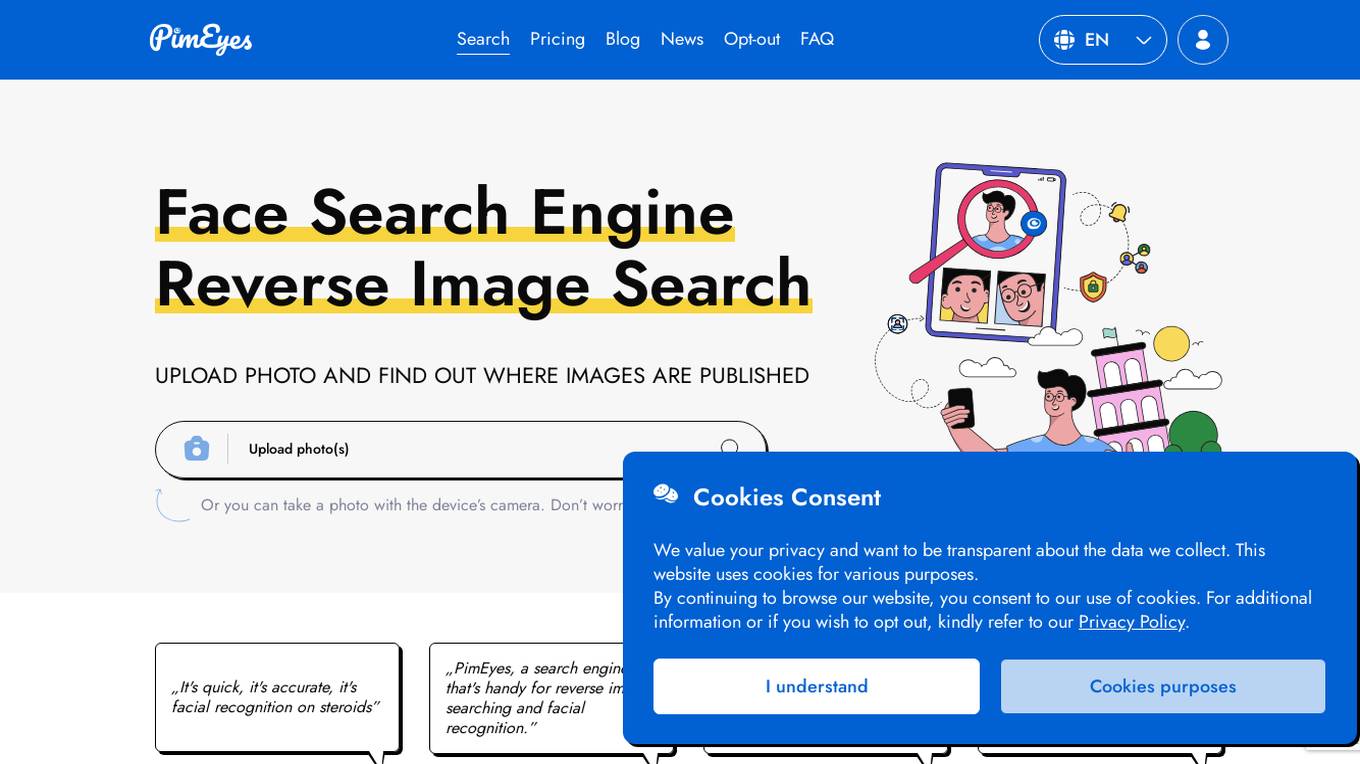
PimEyes
PimEyes is an online face search engine that uses face recognition technology to find pictures containing given faces. It is a great tool to audit copyright infringement, protect your privacy, and find people.
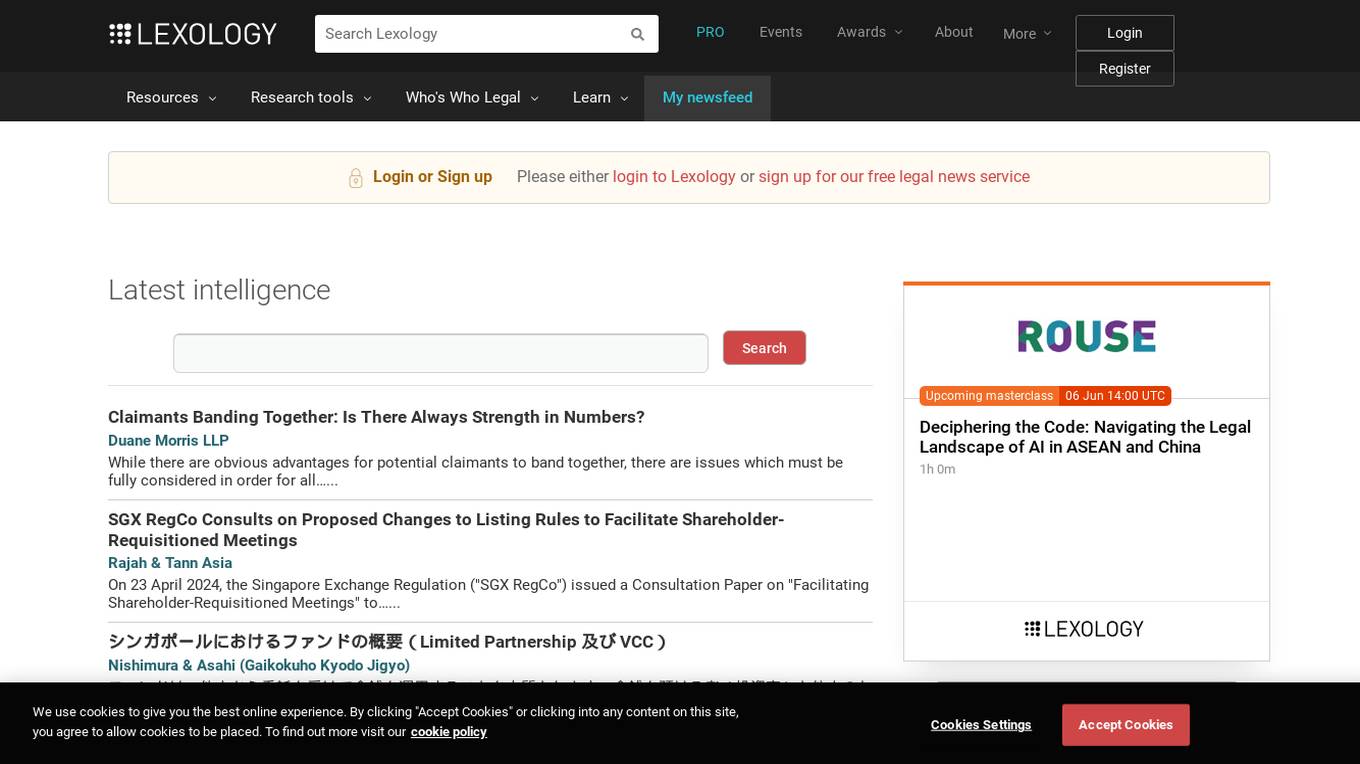
Lexology
Lexology is a next-generation search tool designed to help users find the right lawyer for their needs. It offers a wide range of resources, including practical analysis, in-depth research tools, primary sources, and expert reports. The platform aims to be a go-to resource for legal professionals and individuals seeking legal expertise.
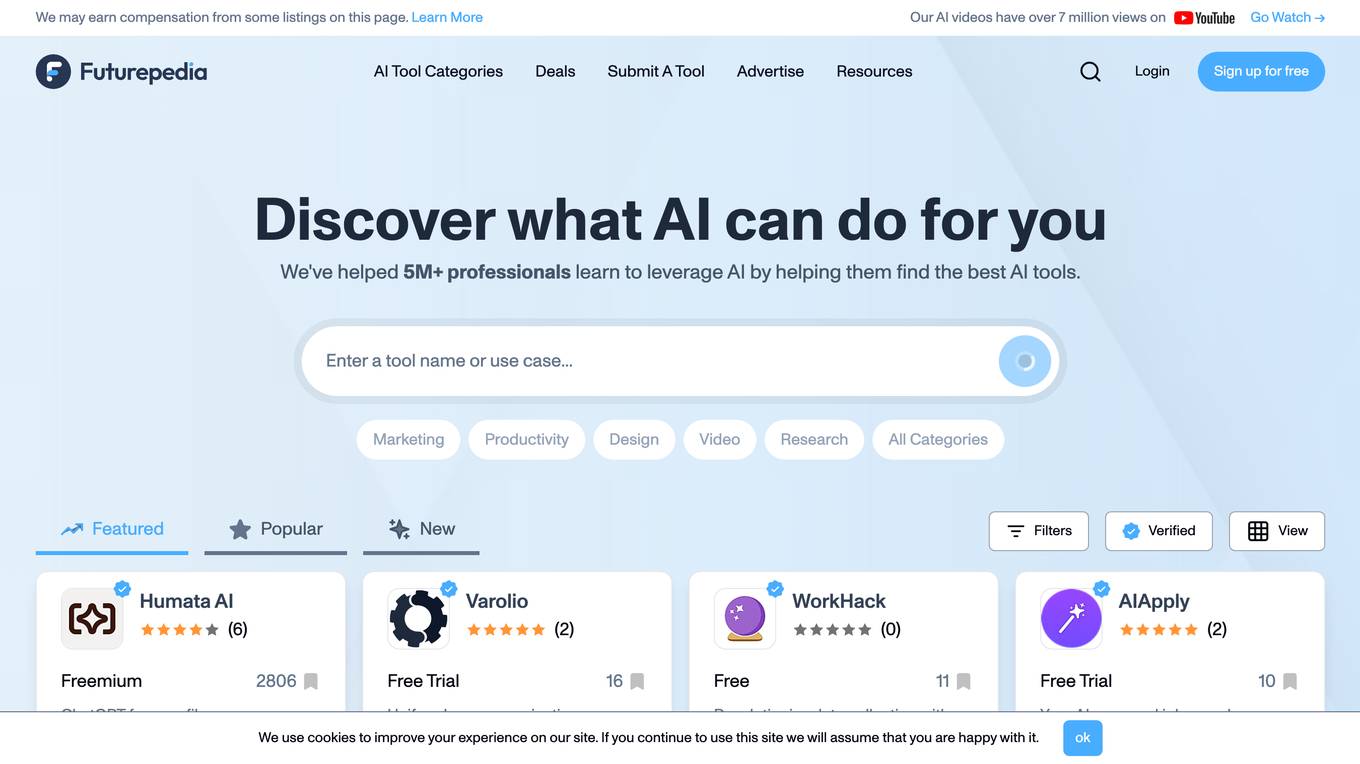
Futurepedia
Futurepedia is a leading AI resource platform dedicated to empowering professionals across various industries to leverage AI technologies for innovation and growth. Our platform offers comprehensive directories, easy-to-follow guides, a weekly newsletter, and an informative YouTube channel, simplifying AI integration into professional practices. Committed to making AI understandable and practical, we provide resources tailored to diverse professional needs, fostering a community where more than 200,000 professionals share knowledge and experiences.

GrabJobs
GrabJobs is an AI-powered job search platform that helps job seekers find the best jobs and grow their careers. With millions of job opportunities from industry-leading companies, GrabJobs makes it easy to find the perfect job for your skills and experience. Our AI-driven job recommendations and chat-based job applications make the job search process faster and more efficient. Plus, our time-saving automated applications ensure that you can apply to more jobs in less time.
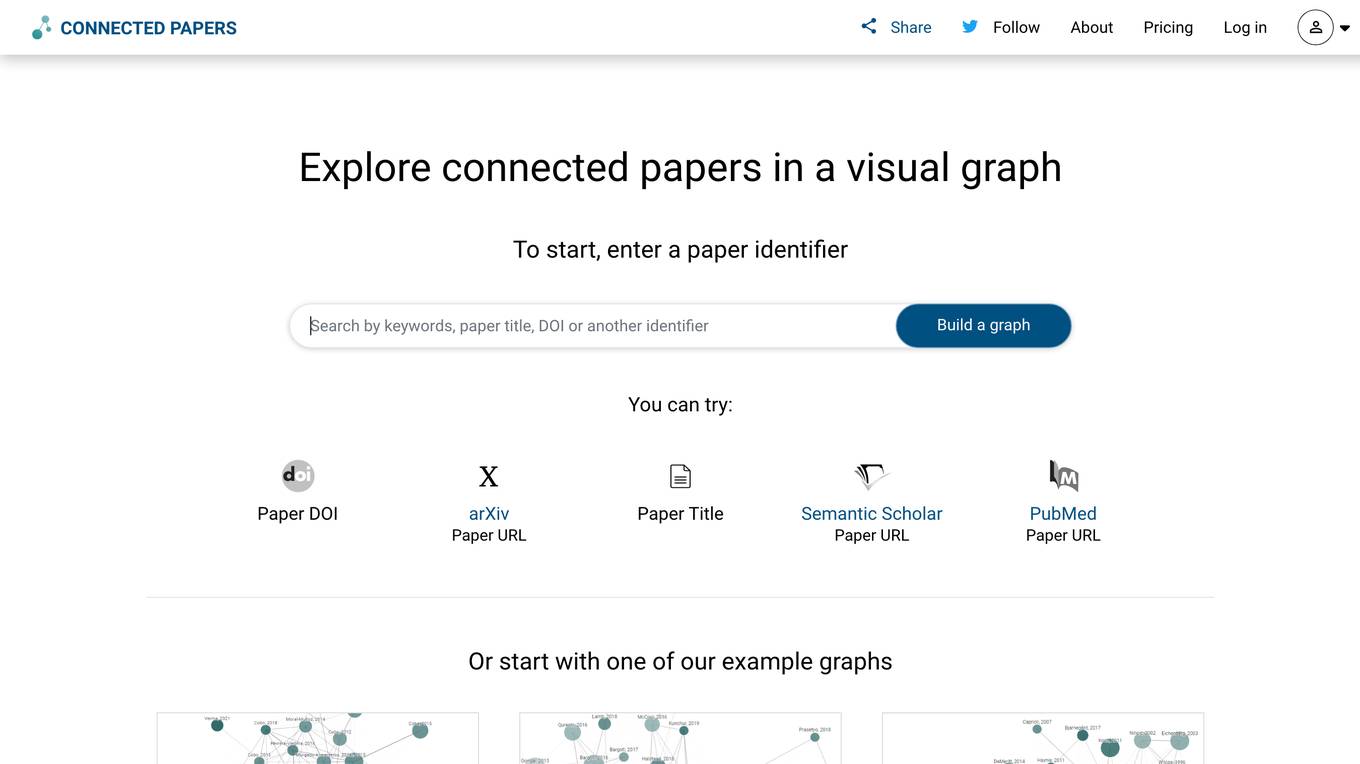
Connected Papers
Connected Papers is a search engine for academic papers that uses artificial intelligence to help users find and explore relevant research. It allows users to search for papers by keyword, author, or title, and then explore the connections between them. Connected Papers also provides a variety of tools to help users organize and manage their research, including the ability to create custom collections of papers, add notes and annotations, and share their research with others.
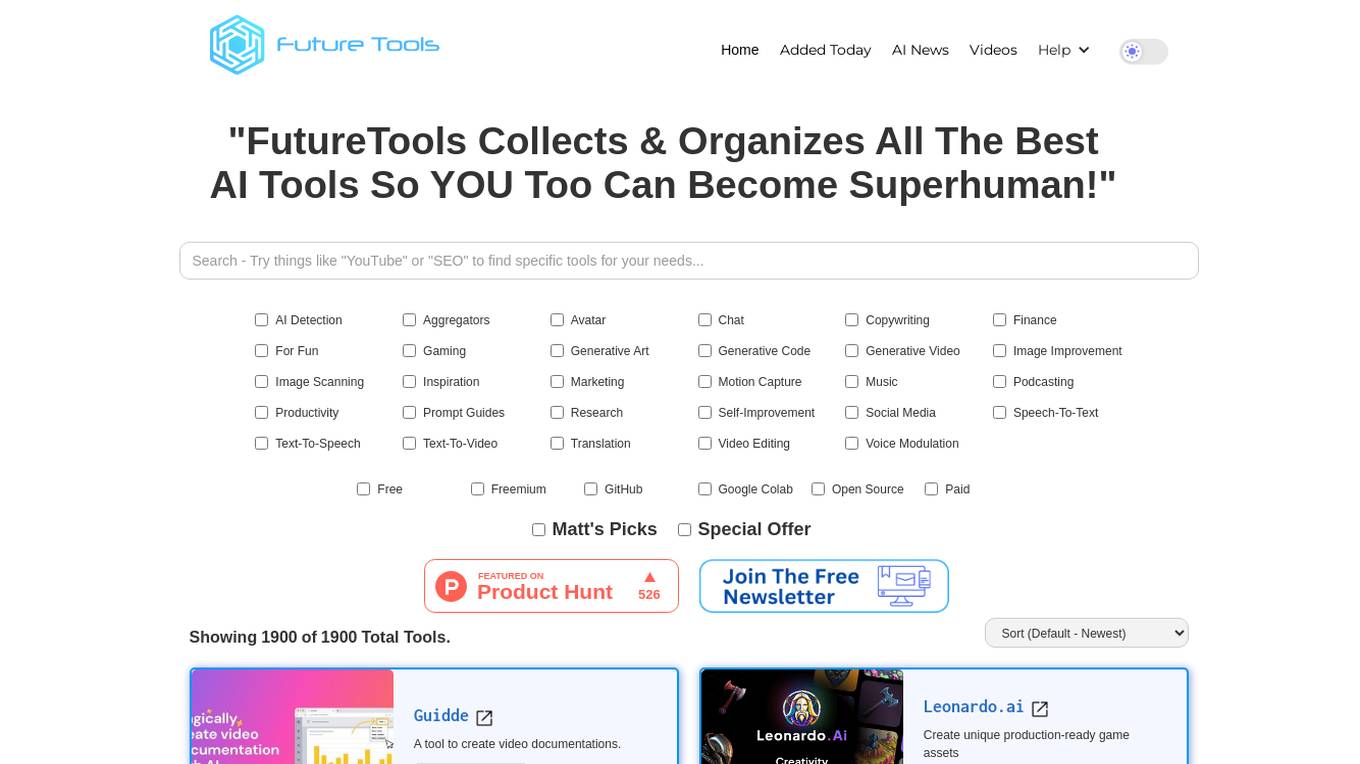
Future Tools
Future Tools is a website that collects and organizes AI tools. It provides a comprehensive list of AI tools categorized into various domains, including AI detection, aggregators, avatar chat, copywriting, finance, gaming, generative art, generative code, generative video, image improvement, image scanning, inspiration, marketing, motion capture, music, podcasting, productivity, prompt guides, research, self-improvement, social media, speech-to-text, text-to-speech, text-to-video, translation, video editing, and voice modulation. The website also offers a search bar to help users find specific tools based on their needs.
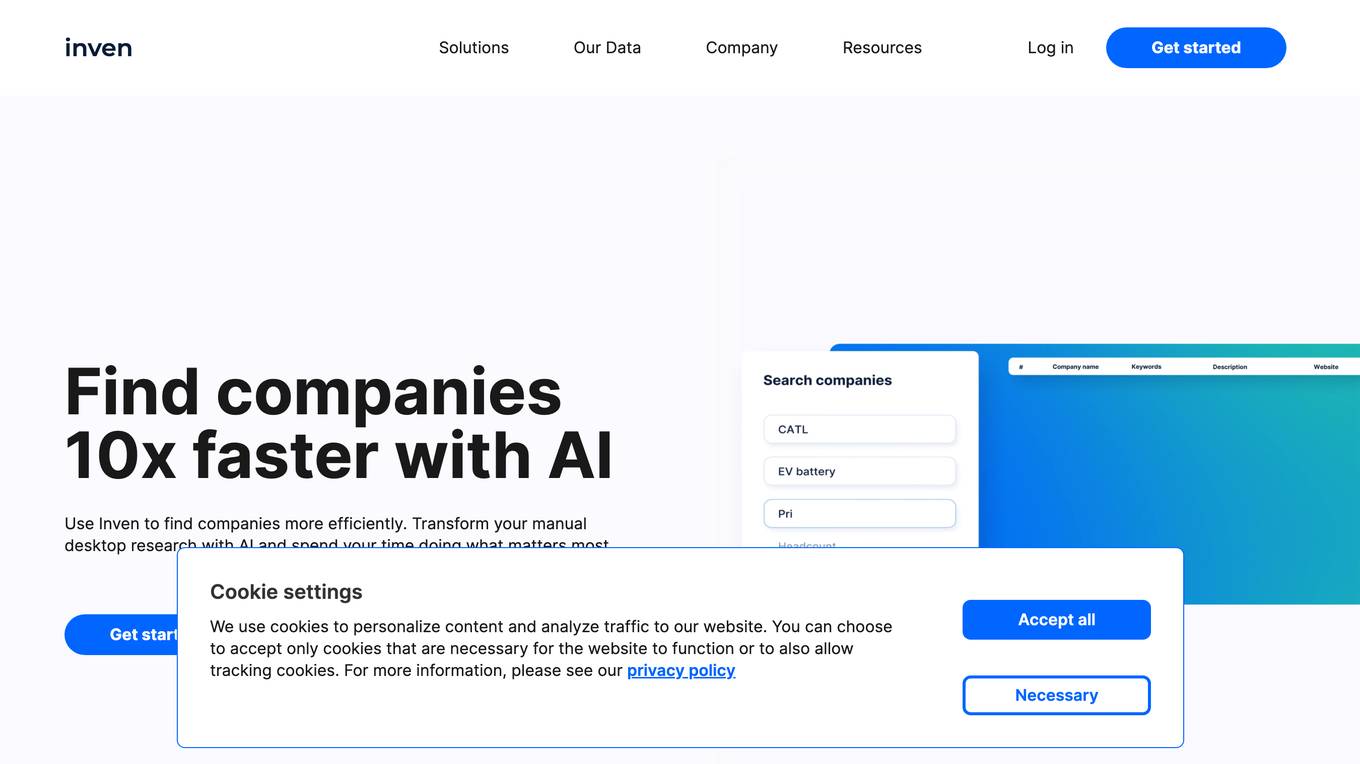
Inven
Inven is an AI-powered company data platform that helps professionals in private equity, investment banking, business brokerage, consulting, and corporate development find companies faster and more efficiently. With Inven, users can access a database of over 23 million companies and 430 million contacts in over 160 countries. Inven's AI algorithms and NLP solutions analyze millions of data points from a wide range of sources to give users actionable insights on any niche.
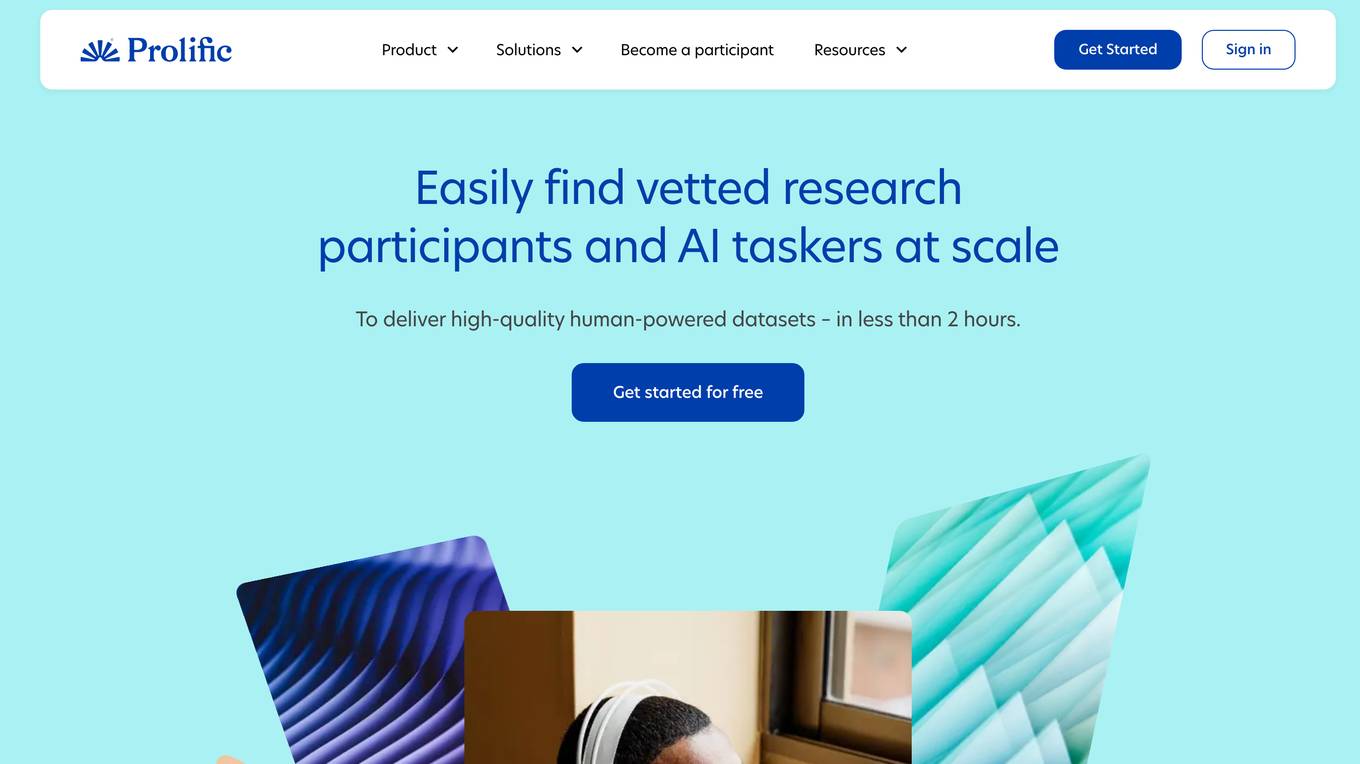
Prolific
Prolific is a platform that helps users quickly find research participants they can trust. It offers free representative samples, a participant pool of domain experts, the ability to bring your own participants, and an API for integration. Prolific ensures data quality by verifying participants with bank-grade ID checks, ongoing checks to identify bots, and no AI participants. The platform allows users to easily set up accounts, access rich and comprehensive responses, and scale research projects efficiently.

WinningHunter
WinningHunter is a powerful product research tool that helps you find winning products to sell online. It has a variety of features that make it easy to find products that are trending, have high sales volume, and are likely to be profitable. WinningHunter also provides data on ad spend, revenue, and other metrics to help you make informed decisions about which products to sell.
0 - Open Source AI Tools
20 - OpenAI Gpts
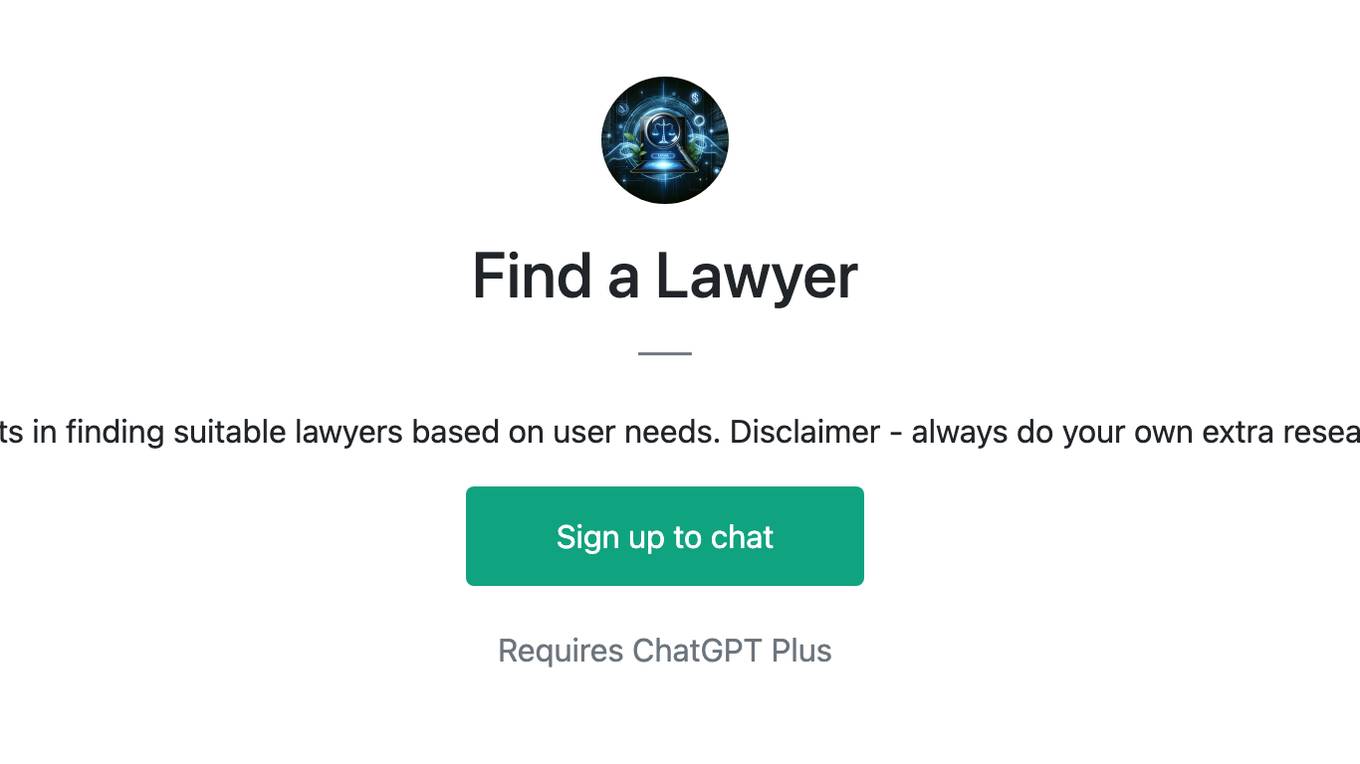
Find a Lawyer
Assists in finding suitable lawyers based on user needs. Disclaimer - always do your own extra research
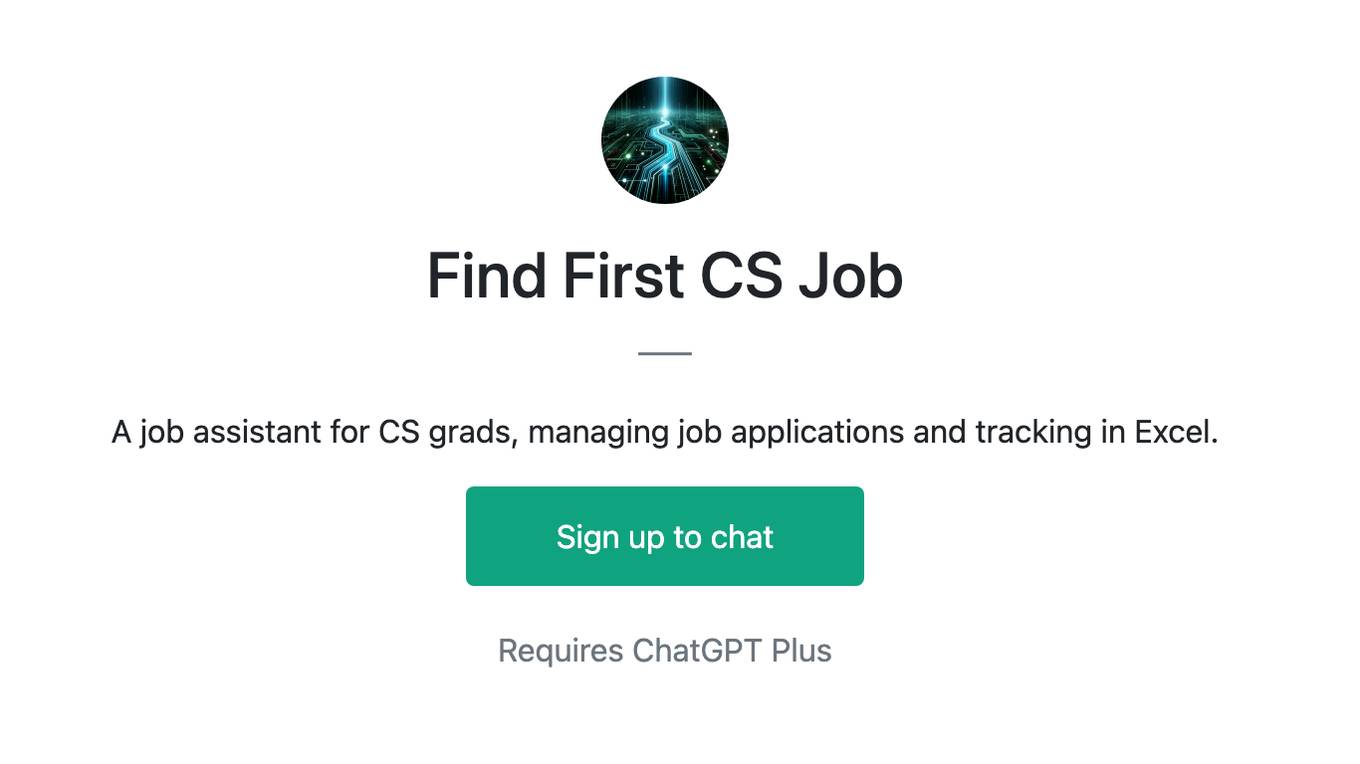
Find First CS Job
A job assistant for CS grads, managing job applications and tracking in Excel.

Find Your Terminal
A specialist in recognizing flight tickets and providing terminal information.
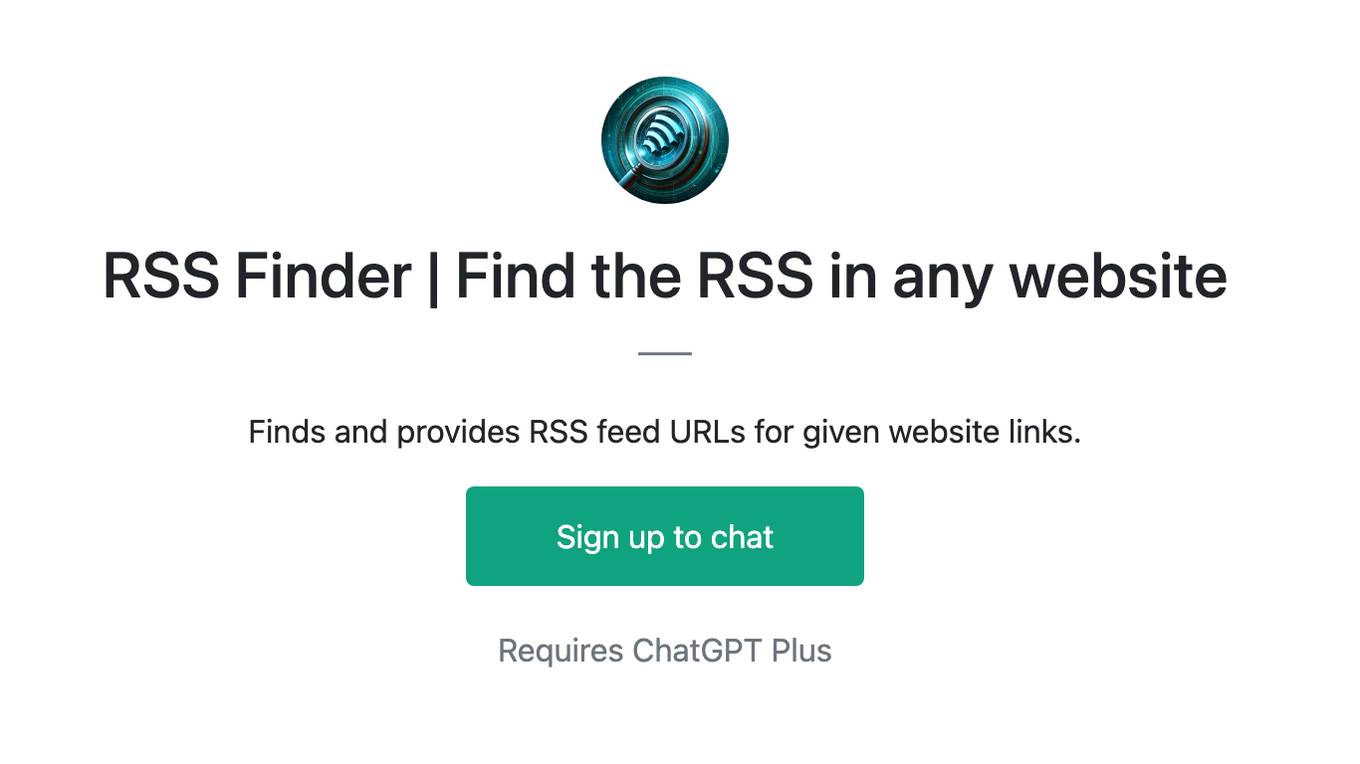
RSS Finder | Find the RSS in any website
Finds and provides RSS feed URLs for given website links.
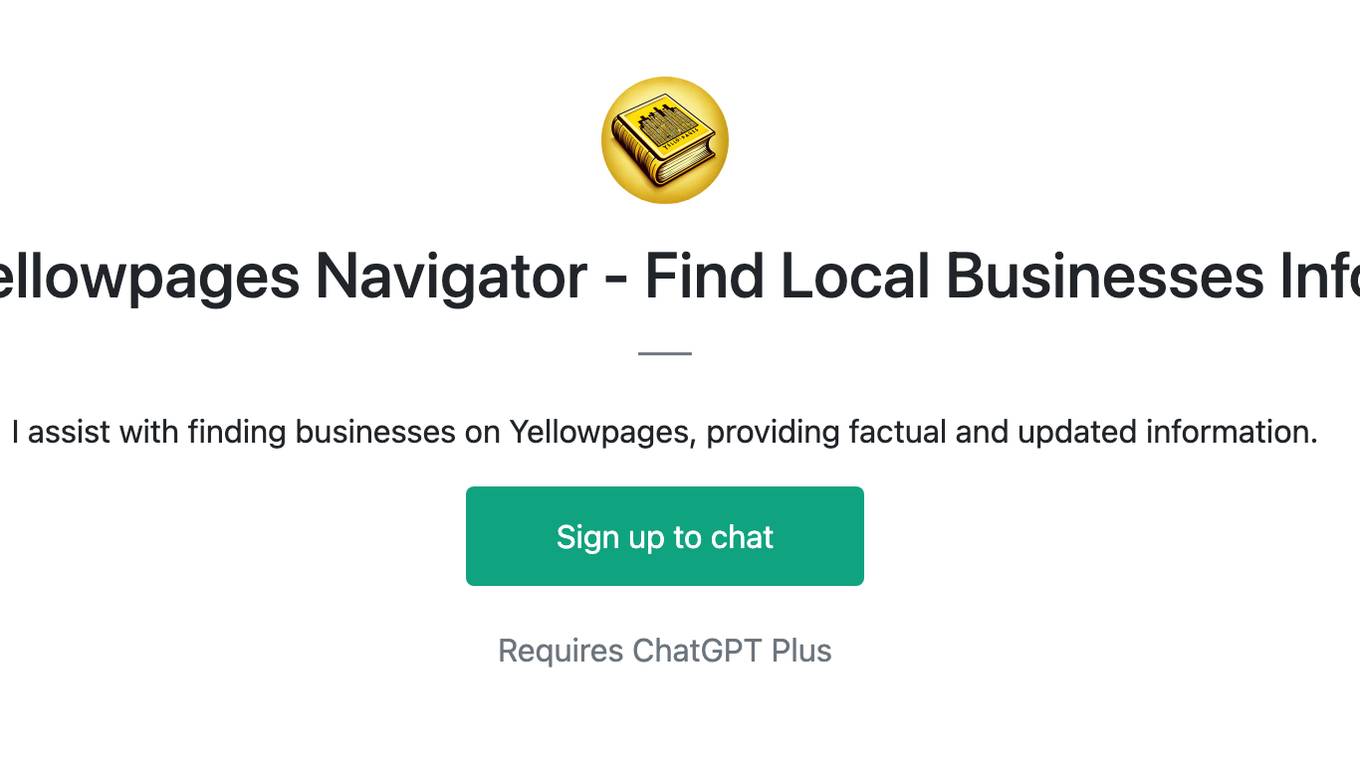
Yellowpages Navigator - Find Local Businesses Info
I assist with finding businesses on Yellowpages, providing factual and updated information.

Find Any GPT In The World
I help you find the perfect GPT model for your needs. From GPT Design, GPT Business, SEO, Content Creation or GPTs for Social Media we have you covered.

Find Top CPA Accountant Near You
This GPT assists in finding a top-rated accountant CPA - local or virtual. We account for their qualifications, experience, testimonials and reviews. Whether business or personal, provide a short description of the services wanted and city or state.

Find Top Bookkeeping Services Near You
This GPT assists in finding a top-rated bookkeeping services - local or virtual. We account for their qualifications, experience, testimonials and reviews. Whether business or personal, provide a short description of the services wanted and city or state.
